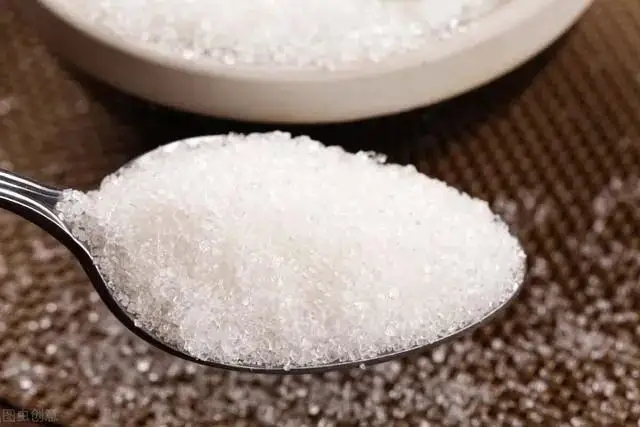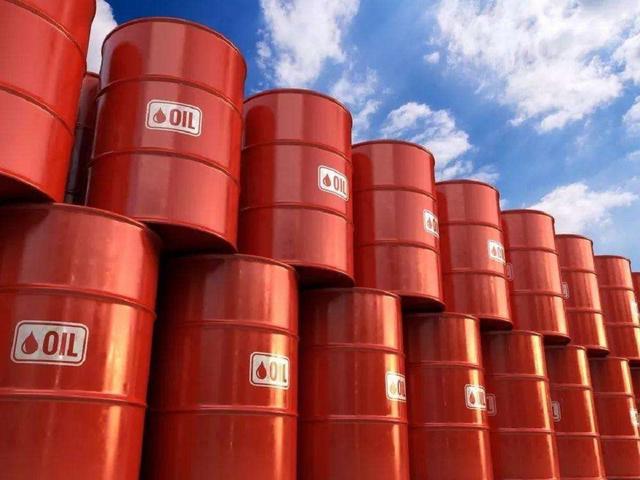The most upstream commodities are a strange group. Once upstream production is blocked, middlemen, downstream factories, and even consumers will more or less “lie on their guns”! Just like the hottest new energy vehicle industry chain, the shortage of lithium battery raw materials has brought great challenges to the production of power batteries, which has stuck the neck of the new energy vehicle industry. If it’s just longitudinal conduction, it’s OK! Surprisingly, commodities can also restrict each other. For example, since this year, the fluctuation of gasoline prices in Brazil has had a noticeable impact on sugar prices!
1. Transmission Logic of the Influence of Crude Oil Price on Sugar Price
Sugar material (sugarcane/beet) can be used to produce both sugar and ethanol, and ethanol is mainly used in gasoline blending. With the promotion of ethanol in sugar producing countries all over the world, the proportion of ethanol from sugarcane has increased significantly. As the “king of commodities”, the price fluctuation of crude oil will affect the price of gasoline, thus transmitting to the price of ethanol, and ultimately affecting the price of sugar. In the future, the price of agricultural products will be more closely related to the price of crude oil.
Logic of influence of crude oil price on sugar price:
1) As the upstream raw material, the price of refined gasoline mainly depends on crude oil.
2) Similar to the domestic refined oil pricing mechanism, Brazil’s domestic gasoline price is determined by Petrobras based on the weighted average of the prices of U.S. crude oil (WTI), Brent crude oil (BRENT) and U.S. unleaded gasoline (RBOB).
3) In Brazil, on the production side, the cane pressing process of most sugar mills can adjust the production ratio of ethanol and sugar. From the perspective of the capacity of national sugar factories, the adjustment range of their sugar production proportion is about 34% – 50%. The adjustment mainly depends on the price difference between sugar and ethanol – when the price of sugar is much higher than that of ethanol, Brazilian sugar factories will maximize the production of sugar; When the price of sugar is close to that of ethanol, sugar mills will produce as much ethanol as possible; When the prices of the two are close, because most of the ethanol sales are in Brazil, sugar factories can quickly withdraw funds, while two-thirds of the sugar production is used for export, and the speed of payment collection will be relatively slow. Therefore, the more sugar factories in the mainland, the more they tend to produce ethanol. Finally, for Brazil, the adjustment of 1% sugar production proportion will affect 75-80 million tons of sugar factories. Therefore, under extreme conditions, sugar factories can adjust the sugar output of 11-12 million tons without changing the sugarcane harvest, and this change rate is equivalent to China’s sugar output in a year. It can be seen that Brazil’s ethanol production has a huge impact on global sugar supply and demand.
4) For Brazil, absolute ethanol is compulsorily mixed with pure gasoline (gasoline A) to form gasoline C (27%); In addition, at the gas station, consumers can flexibly choose to inject C-type gasoline or hydrous ethanol into the fuel tank, and the choice is mainly based on the economy of both – the calorific value of ethanol is about 0.7 of gasoline. Therefore, when the price ratio of hydrous ethanol to C-type gasoline is below 0.7, consumers will increase ethanol consumption and reduce gasoline consumption; vice versa
5) In addition to Brazil, India, the European Union and other countries are also encouraging ethanol production. For the United States, as the world’s largest ethanol producer, the raw materials depend on corn, but the price of corn ethanol in the United States is also affected by energy prices. Finally, there is a trade flow between the United States corn ethanol and Brazil sugarcane ethanol. American ethanol can be exported to Brazil, and Brazilian ethanol can also be exported to the United States. The import and export direction depends on the price difference between the two.
In the absence of new fundamental contradictions, the current weakness of the short-term sugar market is closely related to the decline of oil prices. When the price of crude oil stabilizes, the domestic and foreign sugar markets are expected to rebound again.
2. The policies of the major producing countries are changeable, and the theme of sugar market hype is “fresh”
“According to the recent hot spots in domestic and foreign sugar markets, most of them are related to the main producing countries.” A sugar trader in Nanning, Guangnan, told reporters that so far, many countries around the world have announced bans or restrictions on their own sugar exports, of which the world’s major sugar producing and exporting countries Brazil and India have the greatest impact on the market, followed by Pakistan, Thailand, Indonesia and other countries.
It is understood that among the above major sugar producing countries, India has limited the total amount of sugar exports. The reason given is to ensure the stability of its domestic supply and prevent sugar prices from soaring. Similar to India, Pakistan is also trying to reduce inflation and ensure its domestic supply. However, Pakistan made greater efforts than India, and directly announced a comprehensive ban on its sugar exports in early May. From the perspective of Brazil, it is more special. As the world’s largest sugar producing country, it has a crucial impact on the global sugar supply. At present, against the background of high international crude oil prices, Brazilian sugar factories are reluctant to produce more sugar, although sugar prices have also risen a lot.
However, there is news that the fuel tax in Brazil will lead to a fall in sugar prices. The current market is paying attention to the progress of the bill. It is understood that the Brazilian bill (draft) is likely to cut fuel taxes, especially gasoline, which may lead sugar factories to shift from ethanol production to sugar production, and ultimately lower the global sugar price.
At present, the Brazilian government is promoting legislation to limit the state ICMS tax on fuel to 17%. As the current ICMS tax on gasoline is higher than ethanol, and higher than 17%, the bill will lead to a decline in gasoline prices. To remain competitive, ethanol must also be reduced in price. In the future, if the price of ethanol drops, those factories that can flexibly produce more ethanol or more sugar according to the market price may turn to sugar production, thus increasing global supply. Professionals said that in the key Sao Paulo fuel market, the new law may reduce the competitiveness of ethanol compared with gasoline by 8 percent, making it difficult for biofuel prices to be competitive.
It is also understood that Vietnam will postpone the anti-dumping investigation on refined sugar from ASEAN neighbors (Indonesia, Malaysia, Cambodia, Laos and Myanmar) to July 21, two months later than the original deadline of May 21. In addition, the Indonesian government has increased the issuance of special permits to domestic refineries and sugar mills. Vietnam is one of the largest refined sugar importers in Asia. Since the government announced the imposition of 47.64% tariff on refined sugar imported from Thailand, its imports of refined sugar from Indonesia have increased. After Thailand imposed high import tariffs on sugar, more sugar from Indonesia, Malaysia, Cambodia, Laos and Myanmar flowed into Vietnam.
3. The dispute between gasoline and sugar price
Gasoline is refined from crude oil. The price of gasoline sold by Petrobras to distributors is based on the import parity price, which is formed by the international price of gasoline plus the cost that the importer may bear. When the domestic gasoline price in Brazil deviates from the international oil price to a certain extent, Petrobras will adjust its domestic gasoline ex factory price. Therefore, the international crude oil price will directly affect the basic pricing of Petrobras (the price of Category A gasoline).
Since this year, affected by the situation in Russia and Ukraine, the price of crude oil has risen sharply. On March 11, Petrobras raised the price of gasoline by 18.8%. A large amount of research data on the market shows that flexible fuel vehicles can use gasoline C or hydrous ethanol as the energy source. Car owners usually choose fuel based on the ethanol/gasoline price ratio. 70% is the dividing line. Above the dividing line, they prefer to use gasoline, otherwise they prefer ethanol. This choice of consumers will naturally be transmitted to manufacturers. For sugarcane processing plants, if the global crude oil price rises, they will give priority to the production of ethanol rather than sugar.
One sentence summary: oil price rose – gasoline price rose in Brazil – ethanol consumption increased – sugar production decreased – sugar price rose.
As the world’s largest producer and exporter of sugar, Brazil’s position in the global sugar market is obvious to all. Although Brazil’s sugar output is high, its domestic consumption level accounts for less than 30% of the output. Its export accounts for more than 70% of the country’s sugar output, and more than 40% of the global export. However, the anomaly is that, unlike many of the logic that determines the rise and fall of commodities, the supply and demand relationship of sugar prices does not truly reflect the changes in global sugar prices. The factors involved are slightly more complicated. Generally speaking, it is related to the excessive concentration of global sugar production and export. Therefore, if you want to know the trend of sugar price, you must look at it in combination with Brazil, the main sugar producer.
CICC made a representative conclusion: in the global sugar pricing mechanism, the decisive factor of Brazil’s sugar price lies in the supply side, not the demand side. From the perspective of domestic fundamentals, Brazil’s domestic consumption has been relatively stable in recent years, and the supply capacity is significantly higher than the demand consumption. Therefore, on the long-term supply and demand curve, the marginal change at the supply side is the key to determine the Brazilian sugar price, and also the main factor affecting the international sugar price. In terms of international sugar price, under Brazil’s high yield expectation, according to USDA’s forecast, the global sugar output in 2022/23 will also increase by 0.94% year-on-year to 183 million tons, still in a state of oversupply.
In other words, as far as the current situation is concerned, there will be no shortage of food. For the current sugar market, there is a contradiction between the increase in production in the main producing countries and the rise in energy prices. However, in the long run, the fundamental changes brought about by the crude oil price will have a more far-reaching impact on the sugar price. With the benefit of other macro factors, the long-term raw sugar is expected to continue to grow stronger along with the oil price.
JinDun Chemical is committed to the development and application of special acrylate monomers and special fine chemicals containing fluorine.JinDun Chemical has OEM processing plants in Jiangsu, Anhui and other places that have cooperated for decades, providing more solid backing for customized production services of special chemicals.JinDun Chemical insists on creating a team with dreams, making products with dignity, meticulous, rigorous, and go all out to be a trusted partner and friend of customers! Try to make new chemical materials bring a better future to the world!
Post time: Nov-22-2022



